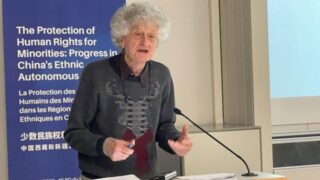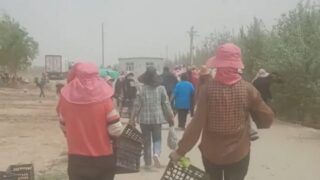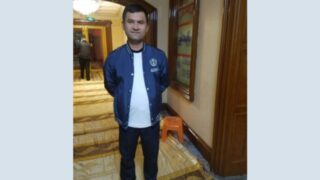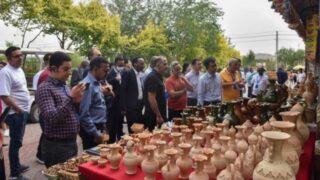33 years ago villagers in Akto country, East Turkestan (Ch. Xinjiang), rebelled against the Chinese power. They were all killed.
by Abdurehim Gheni Uyghur


33 years ago today, on April 5, 1990, a revolution broke out in the village of Barin in Akto County, Kizilsu Kyrgyz Prefecture, near Kashgar in Chinese occupied East Turkestan (Ch. Xinjiang). The revolution sent a strong message to the Chinese colonizers about the unwavering will of the people in East Turkestan, their stubborn pursuit of independence, and their unyielding desire for freedom. This was a revolution, with great significance in East Turkestan’s recent history. It declared to the world: we are still alive, and we want our independence.
On April 5, 1990, in the small village of Barin, around two hundred people held a demonstration against government policies on family planning, religious suppression, mass migration of Han Chinese to East Turkestan, and heavy imposition of taxes.
Thirty-three years ago, the peaceful protest of the ordinary citizens of the Barin village was met with bloody crackdown by the local government. More than fifty people were shot dead on the spot, the rest were arrested, most of whom were tortured to death in prisons. Infuriated by the government’s handling of the protest and the bloody crackdown, over two thousand people retaliated by attacking police stations and occupying government buildings. The protesters seized guns and captured five soldiers. At the same time, other protesters were arrested by the Chinese military. Eventually, the villagers and the Chinese government officials exchanged hostages.
The revolution, led by Zaidin Yusuf, did indeed panic the Chinese Communist Party, including its then leaders Deng Xiaoping, Jiang Zemin, and Li Peng. To prevent the uprising from further spreading into other areas in East Turkestan, the Chinese government sent their army equipped with tanks and war planes to the Barin village, to carry out the massacre of its entire civilian population. The revolution had lasted seven days, after starting on April 5, 1990. Tragically, the Chinese soldiers brutally massacred almost all unarmed civilians in the Barin village.
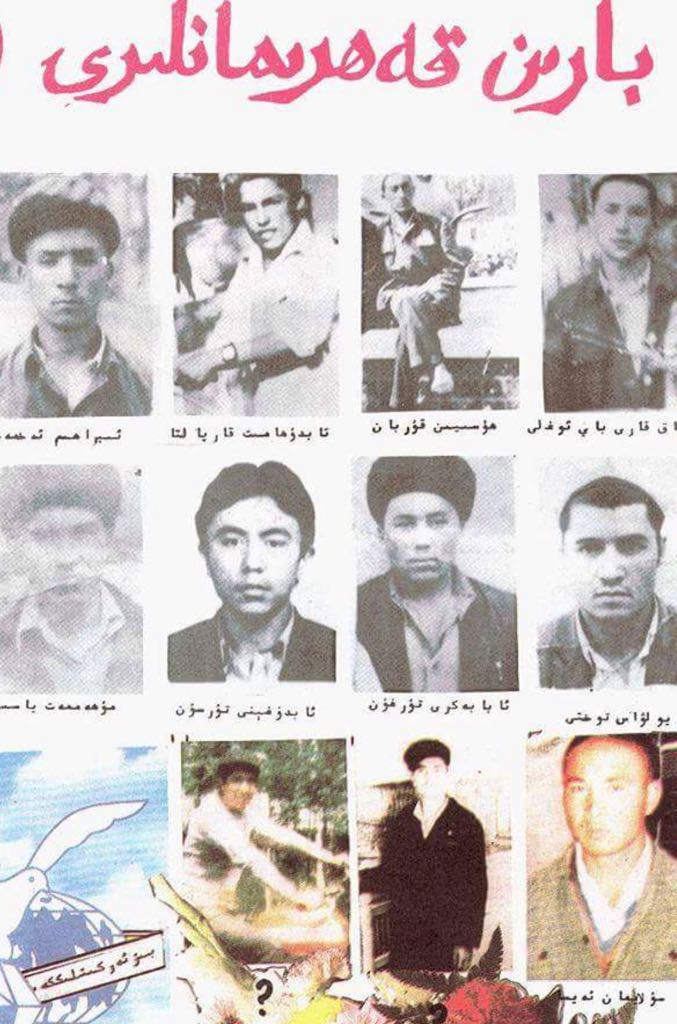

A Chinese soldier who participated in the blood purge and years later fled to the United States came forward and exposed the brutal massacre. According to his account, almost all civilians, regardless if they were participants or not in the revolution, men, women and children, were slaughtered.
The international community condemned the bloody massacre. Amnesty International published an exclusive 92-page report to urge Chinese government to admit the violation of human rights, to immediately halt all large-scale oppression following the Barin revolution, and all forms of human rights abuses in East Turkestan.
The Barin revolution demonstrated the indomitable courage and extraordinary will power of Uyghurs and other Turkic peoples of East Turkestan. It was a declaration that they would not succumb to slavery, and East Turkestan does not belong to China. It is one of the most significant uprisings in recent history and shows the East Turkestan people’s unflappable determination for freedom.
The people of East Turkestan remember this incredible resilience of the Barin villagers, who demonstrated the national spirit. Our people remember and honor the fallen heroes, especially the leader of the revolution, Zaidin Yusuf, who sacrificed his life for the cause of our freedom. Today, we honor and feel proud of Zaidin Yusuf and those who lost their lives in the fight for freedom. We will never forget this glorious history that demonstrated the resilience of Uyghur people. We believe we are born free, and we will someday live free as all other free nations in an independent East Turkestan. Our fight will not stop until the day we regain our freedom and independence.




